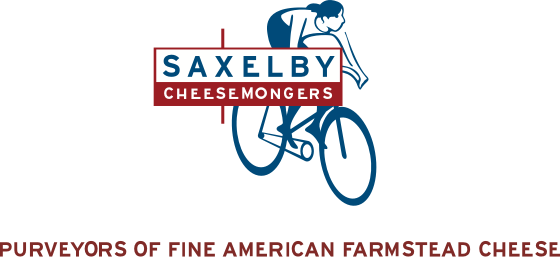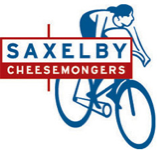
Growing up on a Vermont maple sugar farm, Amy Forgues often dreamed of making farmstead cheese with her own milk, but the building cost for a new creamery starts in the six figures, an amount she and her husband Travis considered "insurmountable." Instead, they turned to organizing. When the milk buyer for her in-laws' farm was swallowed up by a large dairy processor in 1999, Forgues and her husband rallied 60 small farmers to join the Organic Valley dairy cooperative instead. "At the time, these large processors were ditching the farmers and just taking the market share. That's what we wanted to avoid," she says. "We were 23 and 24 years old, and we felt like we did something to change agriculture in the state."
Forgues and her husband began working for Organic Valley directly, and that job is the reason they moved out to Wisconsin in 2013. But the couple missed the rhythms of farm life, and when Forgues learned that sheep's milk cheese champion Brenda Jensen was looking to sell Hidden Springs Creamery, she took a leap of faith. "We hadn't farmed for nine years at that point, and it took eight months of visiting the farm to realize this was something we could do," she explains. Travis is a minority co-owner and still works at Organic Valley; Amy took over Hidden Springs in April.
Hidden Springs is the celebrated maker of Wischago, a Midwest take on the Spanish classic Manchego that took home a ribbon at this year's American Cheese Society competition. They also produce a dynamic, sweet-meets-savory take on Roquefort called Bohemian Blue, and a dreamy sheep's milk feta. Forgues doesn't intend to change any of that—"there's a lot of experience coming with the operation," she insists—though she has big plans for the farmstead creamery.

Those plans include the costly logistical legwork to get the farm's soil certified organic, with a greater focus on pasture grazing. Next year she'll oversee the installation of 130 solar panels on the barn and creamery roof, which are projected to cut electricity costs by a third. Even the sheeps' wool will get repurposed; Forgues plans to sell it to a processor that can condense the fibers into pellets of nitrogen-rich natural fertilizer. Her son Gabe, a dairy scientist who specializes in animal feed, has joined her on the farm to help with providing stellar nutrition to their herd; in his spare time he's tinkering with distilling the creamery's discarded whey into vodka.
"I'm in love with sheep's milk," Forgues says. "The protein and components are so high it feels almost foolproof." Sheep's milk contains more fat than goat's or cow's milk, which imbues cheese, yogurt, and ice cream with a dense richness. The creamery's head cheesemaker of more than a decade, Jose Rigoberto Campos, continues to run the cheesemaking operation, and herdsman Jonas Miller, who's also spent 10 years at Hidden Springs, continues to care for the animals. Their bedrock of institutional knowledge gives Forgues some breathing room to explore marketing and other improvements to keep the farm thriving.
It helps living in America's dairyland, she explains. "I've farmed in Vermont and I've farmed in Wisconsin. The soil is different here; things grow better. And there's more infrastructure to support all the farmers." According to the Vermont Department of Agriculture, there are fewer than 600 dairy farms in the state. Wisconsin has more than 6,000.

That infrastructure extends to professional bonds. Forgues is blown away by the support she's received from the dairy community; even before she closed on the farm, local farmers associations prompted her to apply for specific grants without her even asking. "Small family farms are endangered everywhere," she says, "but some places more than others. Had I been living in Wisconsin instead of Vermont when I was younger, starting a farm of my own might not have been insurmountable."
Forgues wants to pay the knowledge sharing forward, and thinks sheep might be a way to do it. The U.S. imports over 70 million pounds of sheep's milk cheese each year, she notes; domestic creameries make just over 3 million. "There's a need," she continues, "and when farmers are going out of business all over the country, I'd like to be part of educating people who want to make it in the business on their own."
Taste Hidden Spring's amazing sheep's milk cheese!
Farm photos courtesy of Hidden Springs Creamery.

